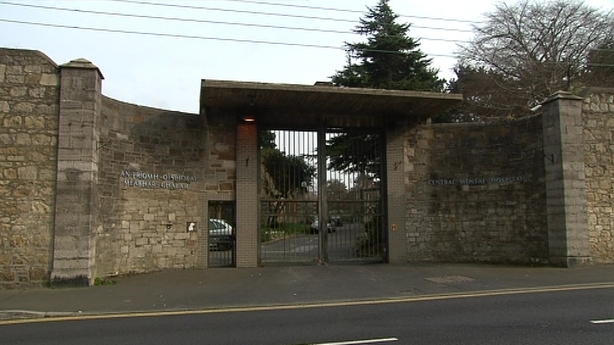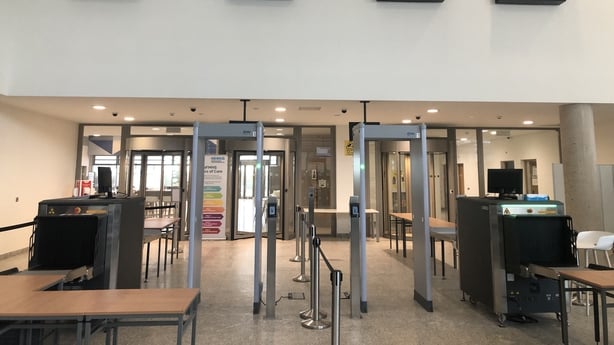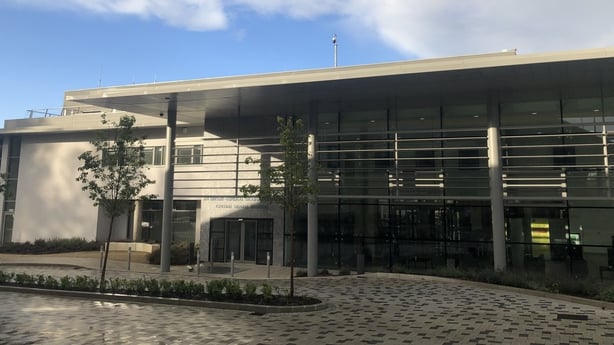The long-awaited new Central Mental Hospital is officially opening, after being relocated to a new €200m campus in Portrane in north Dublin.
The facility has been moved from a Victorian-era building in Dundrum, where many of its buildings dated back to 1852. It had frequently been criticised as being not fit for purpose.
The Mental Health Commission had required the closure of the Dundrum site by March this year.
Its last report identified three "high risk" breaches in compliance, with many of the aspects criticised due to the unsuitability of the building.
The new hospital was completed in 2020, however, further construction work and industrial relations issues had delayed the opening until now.

The Central Mental Hospital is located on the National Forensic Mental Health Service (NFMHS) campus in Portrane.
It was officially opened by Minister for Health Stephen Donnelly, Minister for Mental Health and Older people Mary Butler, and James Browne, Minister of State for Law Reform.
Initial capacity will be for 110 patients and it is understood the 94 existing patients from the facility in Dundrum will be transferred in the coming weeks.
About two-thirds of the hospital's patients are admitted through the criminal justice system and it is understood around half of the current patients are considered to be high-security patients.
Capacity in the CMH will increase to 130 in 2023. Approximately 400 clinical and support staff will also be moving to the new site.
The NFMHS total capacity will be 170, to include an ICRU (Intensive Care Rehabilitation Unit), which will cater for short stays, and ten beds in the Forensic Child and Adolescent Mental Health Unit (FCAMHS).

The new Central Mental Hospital will have enhanced security measures, with a greater reliance on technology and CCTV surveillance than the former Victorian facility.
The Dundrum hospital's original gate had to be opened manually by staff, while the new CMH sits behind imposing electronic gates.
Visits will now be appointment-only, restricted to approved and vetted visitors, and they will be met with airport-style security scanners at the reception area.
Staff will not be allowed to bring their personal phones into the new facility and will instead be equipped with a device that acts as a personal alarm, fire activation and a phone.
Anti-barricade doors have been installed in some areas of the hospital, to allow staff to access patients quickly in the event they attempt to lock themselves in.

There are several units in the hospital, including one female-only unit.
Each will house two wards, with between ten and 15 beds per ward. There are also two seclusion rooms in each ward.
Ten existing female patients will move into the Portrane hospital this month. For the first time, there will be space to separate female patients based on whether they fall into the high, medium or low-support categories.
This separation of female patients will be phased in during the first six months of 2023 as more staff will be required.
A village centre inside the perimeter of the Central Mental Hospital will serve as a shared recreational space for patients.

Inside, there will be a patient café, where patients themselves will be able to work.
There will be primary care services like a GP and dental practice, as well as a gym, basketball court and rooms dedicated to art, woodwork, cookery and music classes.
Two tribunal rooms have also been built, where a panel appointed by the Mental Health Commission will review patients' cases and make decisions in relation to their continued detention at the hospital.
The General Secretary of the Psychiatric Nurses Association, Peter Hughes, said the new hospital opening is a significant capital investment in mental health facilities, but that some operational and staffing issues remained to addressed.
Speaking on RTÉ's Morning Ireland programme, he said: "We do have a major recruitment and retention crisis in mental health nurses throughout the country ... this month 110 beds will open out of the 170-bed campus and we're very disappointed with that and the reason for that is they do not have the nurses to open the remaining 60 beds."
We need your consent to load this rte-player contentWe use rte-player to manage extra content that can set cookies on your device and collect data about your activity. Please review their details and accept them to load the content.Manage Preferences






